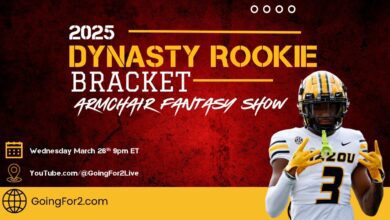Do QBs or New Play-callers Determine Pace?
Determining the pace, or how fast an offense will run, is crucial for fantasy projections. Along with a team’s pass rate, these are top-down metrics that influence the number of opportunities for everyone on the offense. Pat Thorman has a great article each year that highlights any big changes expected for the pace of NFL teams. Given that the quarterback and play-caller both have an opportunity to dictate an offense’s pace, I wanted to know who has the larger influence. This is especially important when either the QB or play-caller are changing for a team.
To determine this, I looked at the situation-neutral pace of every projected 2023 starting QB throughout their careers. By situation-neutral, I mean any play in the first three quarters where the game is within seven points and there are more than 2 minutes left in the half. The goal here is to determine how fast a team moves in normal game scenarios. What we’re actually looking at is the average number of seconds remaining on the play clock when a QB snaps the ball. A higher number means there was more time on the play clock and so the team is playing with a faster pace.
If we look at the percentage change in a QB’s pace by season and split them into times when their play-caller changed versus when they stayed the same, we can get some insight into who has the larger influence on pace. For seasons where a QB’s play-caller didn’t change, their pace changed by 11.9% on average. With a change in play-caller, this jumps to 15.0%. So, there is some influence from the play-caller, but relative to normal pace fluctuations year-over-year, it’s not massive.
There does seem to be a connection between the QB’s age and how dramatically their pace can change year-over-year, though.
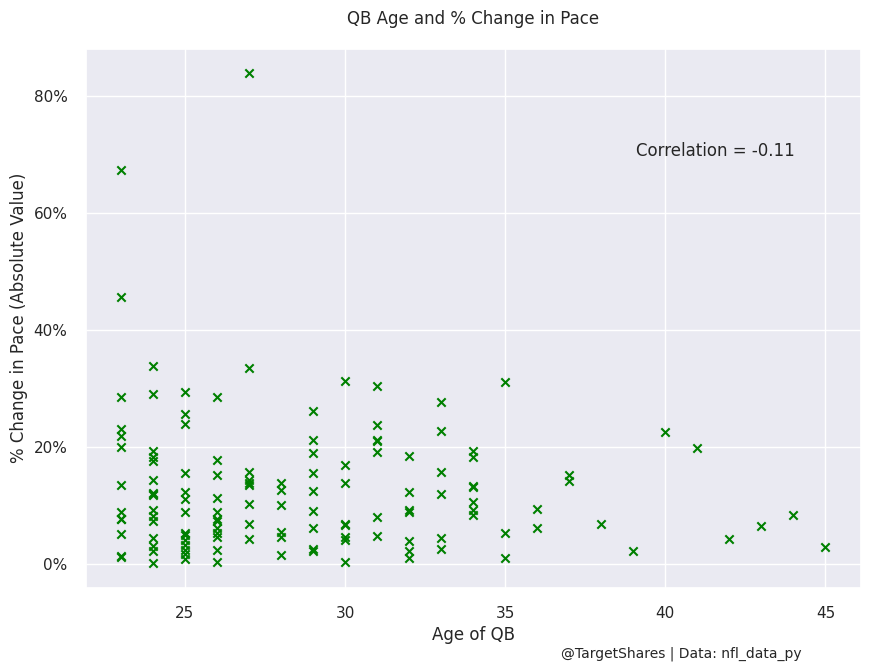
The graph above shows individual QB seasons from 2017-2022. The y-axis is the % change in that season’s pace vs the prior year. It’s not an especially strong linear correlation, but the biggest outlier changes are from younger QBs. Perhaps there is some stubbornness among older QBs to change their play pace regardless of a change in offensive coordinator. Similarly, younger QBs that have shown improvement may now be trusted with faster-paced offenses.
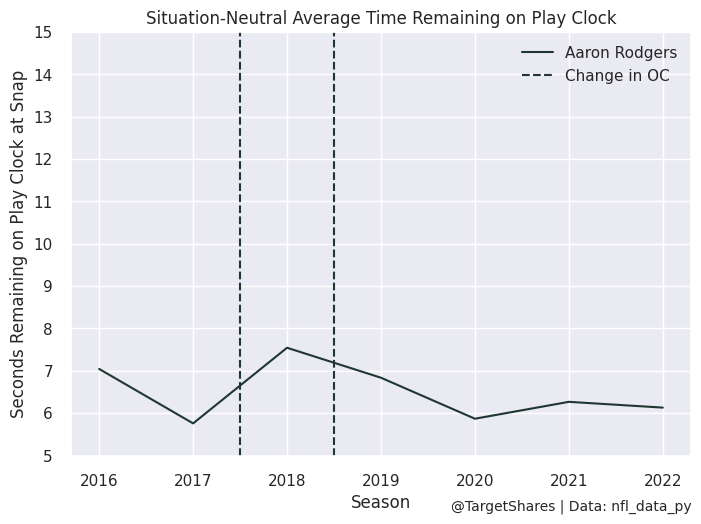
A good example of this is Aaron Rodgers. You can see in the graph above a spike in pace in 2018, and this did correspond with a change in play-caller. But with a range of six-to-eight seconds since 2016, offenses led by Aaron Rodgers operate at an incredibly slow pace. I, unfortunately, can’t find the piece where I read this, but it said something to the effect of “You’ll have to pry the snails-pace offense out of Aaron Rodgers’ cold, dead hands”. That seems spot on and likely caps the play volume for the Jets this year.
However, we have seen some notable examples where a new play-caller influences an offense’s pace in a big way. A great example of this was Kellen Moore in Dallas.
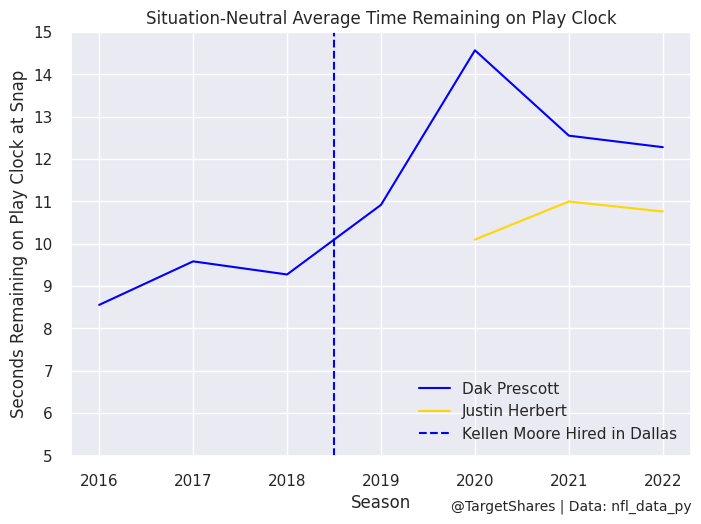
The average number of seconds remaining on the play clock averaged from 8-to-10 seconds for Dak Prescott in the years before Moore was hired. Starting in 2019, though, the Cowboys’ pace quickened dramatically, with a peak of almost 15 seconds remaining on average. In 2023, Kellen Moore is headed to the Los Angeles Chargers. It seems likely that Dak and Herbert’s lines may cross in 2023, with the Chargers playing at a much faster pace and the Cowboys coming back down to Earth.
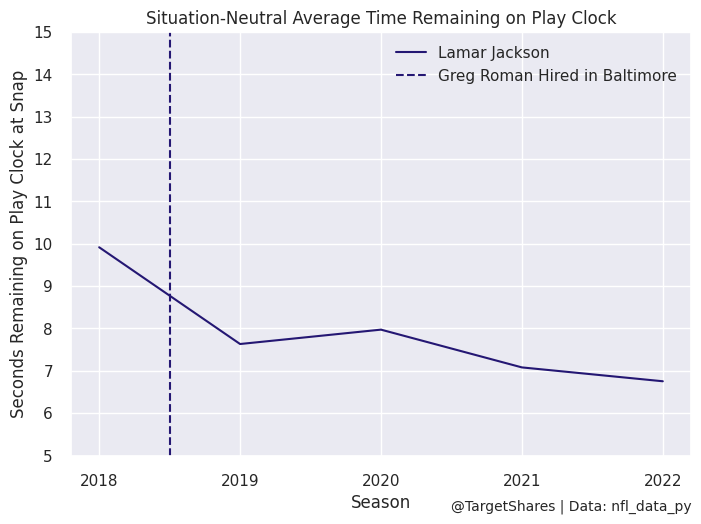
A much-discussed offensive coordinator change for 2023 is in Baltimore. Lamar Jackson’s pace declined dramatically after Greg Roman was hired in 2019 and has slowed further from there. However, Todd Monken is now in town and has promised a faster and more pass-heavy offense. That would be a huge boon to both Lamar and his receivers’ fantasy prospects.
In summary, while changes in offensive coordinators have an influence on pace, it historically hasn’t been dramatic relative to normal year-to-year fluctuations. However, it’s been more likely for a team’s pace to change sharply when they have a younger QB. Moreover, there have been some notable exceptions, particularly when Kellen Moore arrived in Dallas. With him moving to the Los Angeles Chargers, I think its wheels up for Justin Herbert in 2023.
ATTN Dynasty Commissioners: Do you want to do something cool for your league? How about a 1-hour live show dedicated to YOUR league? Team-by-team breakdowns, rankings, and more. For details and to book a show, visit: GoingFor2.com/plp.






